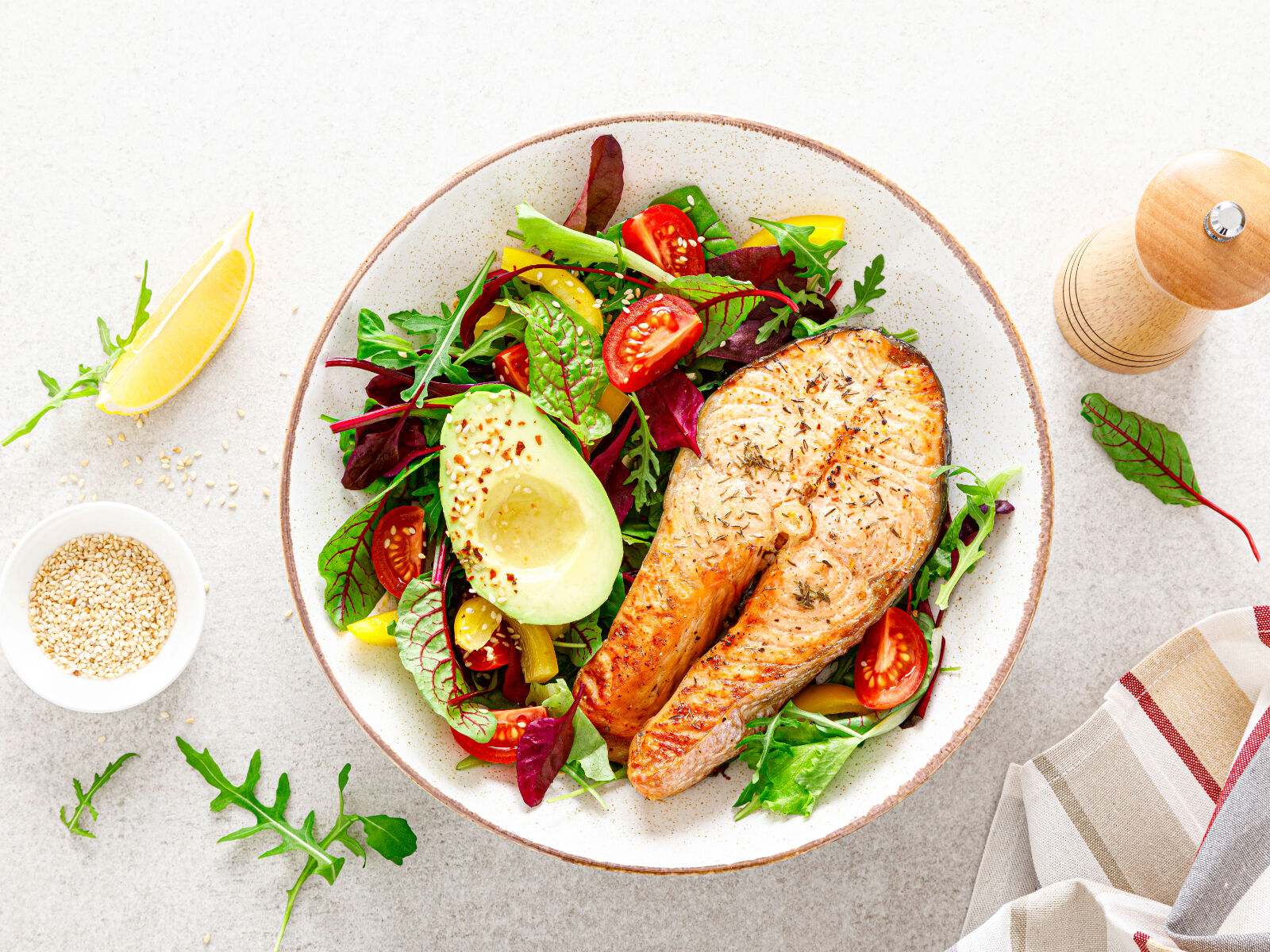Are you still confused about what causes inflammation in the body? There’s acute inflammation is the body’s short-term response to an injury or illness, like a sprain. Then there’s chronic inflammation, which happens when the body’s immune system is trying to fight off unknown substances and can last for months or even years. Recent studies have shown that chronic inflammation may be linked to several diseases, including diabetes, arthritis, and cancer. Thankfully, a healthy diet full of anti-inflammatory foods can benefit chronic inflammation by boosting the immune system.
“A food-first approach will always be better than a supplement,” says Katie Valdes, MS, RD, CSSD, assistant director of sports nutrition at the University of Southern California. She takes a proactive approach with her athletes, so inflammation never becomes a problem in the first place. Her main advice? “Make sure your plate is colorful, and your ingredients are from a pure source. Variety is the key.”
So add more colorful anti-inflammatory foods to your plate with these dietitian-approved nutritious eats.
Related: Sign up to receive delicious recipes, expert advice, and shopping tips in your inbox!
1. Leafy greens
Spinach and kale are bursting with vitamins and antioxidants, so no wonder they’re touted as top anti-inflammatory foods. Buying bunches individually is great, but there are nights when you don’t have time for measuring, washing, and drying.
Valdes recommends always reaching for a bag of pre-packaged organic Power Greens at the grocery store, one that includes kale and spinach mixed with other varieties like chard and mustard greens. It’s a smart shortcut because “you’re getting so many vitamins and minerals at once, including iron.”
2. Salmon
The omega 3’s found in fatty fish help to reduce inflammation, but many of these fish are also high in mercury. Choosing low-mercury fish is paramount, and one of the best options is Atlantic salmon. While most scientific studies focus on fish oil supplements, eating salmon a few times a week as part of a healthy diet will also have positive benefits.
3. Tomatoes
The French call the tomato the pomme d’amour or love apple, and it’s easy to see why. They’re abundant, easy to grow, easier to eat, and an anti-inflammatory superstar, thanks to lycopene. It’s what gives red-colored fruits and vegetables their color. While many foods contain lycopene (red bell peppers and red grapes are standouts), tomatoes contain the highest level. They are a super easy way to amp up the nutritional goodness in your diet.
4. Farro
Studies show that eating high-fiber foods may lower inflammation by improving gut health (and it helps with depression, too). While many grains will do the trick, Valdes recommends farro, an ancient grain found at most supermarkets. “It has a nice nutty taste and is a great source of proteins and carbs.”
One cup provides 20% of the recommended daily fiber intake, much more than white rice, brown rice, and couscous.
5. Tart cherry juice
Who doesn’t love munching on a bowl of ripe, plump cherries in the summertime? But weaving them into your diet year-round can be tricky. Say hello to cherry juice. A 2018 study found that any cherry – fruits, juice, or concentrate – has anti-inflammatory power.
“We give our athletes tart cherry juice post-practice to reduce muscle pain and oxidative stress,” says Valdes. “There’s naturally occurring melatonin in it, so it also helps improve sleep quality. It’s a great thing to add at the end of the day.”
When shopping, check the ingredient list and buy pure cherry juice, as a blend will reduce its potency.
Related: The 6 Best Drinks for Your Brain Health, Say Experts
6. Chili peppers
Spicy chilis add complexity and depth to many dishes, and those jalapenos and habaneros possess a secret power, too: capsaicin. This is where they get their heat, and it’s also the source of their anti-inflammatory properties. Most of the capsaicin resides in the tongue-tingling inner pith and seeds, so next time you’re cooking, embrace the heat. Chiles are currently being studied as a natural treatment for arthritis.
7. Nuts
Walnuts are particularly high in ALA (alpha-linolenic acid), a type of anti-inflammatory omega-3 fatty acid. But all nuts are an important element of an anti-inflammatory diet, particularly if you eat them unsalted. The magnesium in nuts like peanuts and cashews helps with inflammation, too, according to Valdes. She recommends tossing them on your salads or having two to three tablespoons of nut butter a day.
8. Green tea
For centuries, green tea has been prized for its medicinal properties, and millions of people can’t be wrong. It turns out that people who regularly consume green tea have lower levels of c-reactive protein, a marker of inflammation in the body. It’s particularly helpful with certain types of chronic inflammation like rheumatoid arthritis and inflammatory bowel disease. And, no, green tea matcha lattes don’t count! To get the most out of your cup, drink it hot, sugar-free, and caffeinated — many of the health properties are stripped during the decaffeination process.
9. Dark chocolate
When you eat a healthy diet, shouldn’t you be rewarded? The good news is that high-quality dark chocolate is not a “diet cheat.” In fact, it’s full of antioxidants that help lower inflammation.
“Dietary nitrates help with inflammation and are found in foods like beets, arugula, and dark chocolate, too,” says Valdes.
She notes that it won’t have much effect if the dark chocolate is blended with milk chocolate or cut with additives. The chocolate should have a high cacao content of at least 80% and low sugar content. Consider this an excuse to splurge on yourself.
Read next: These 5 Supplements Can Help Reduce Inflammation, Says Science
The post 9 Anti-Inflammatory Foods To Add to Your Diet Right Now appeared first on Clean Plates.


